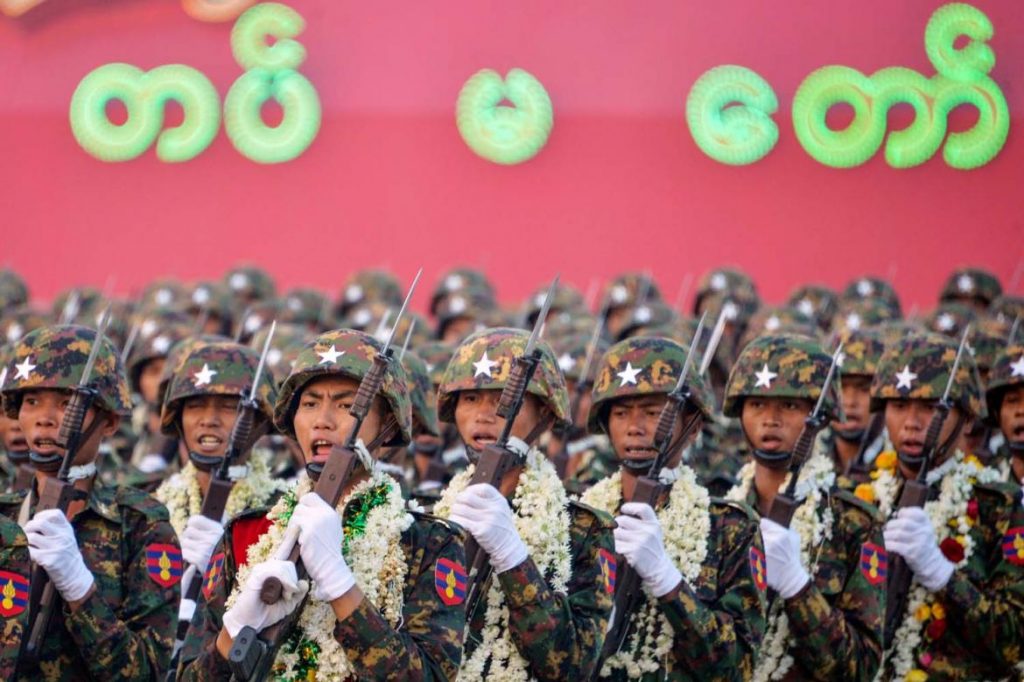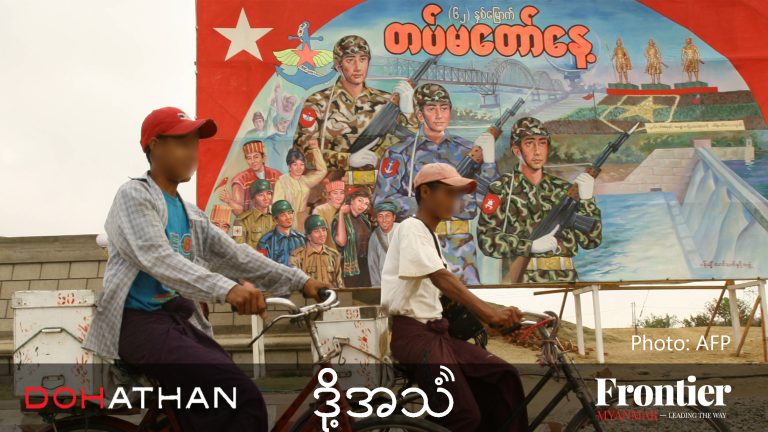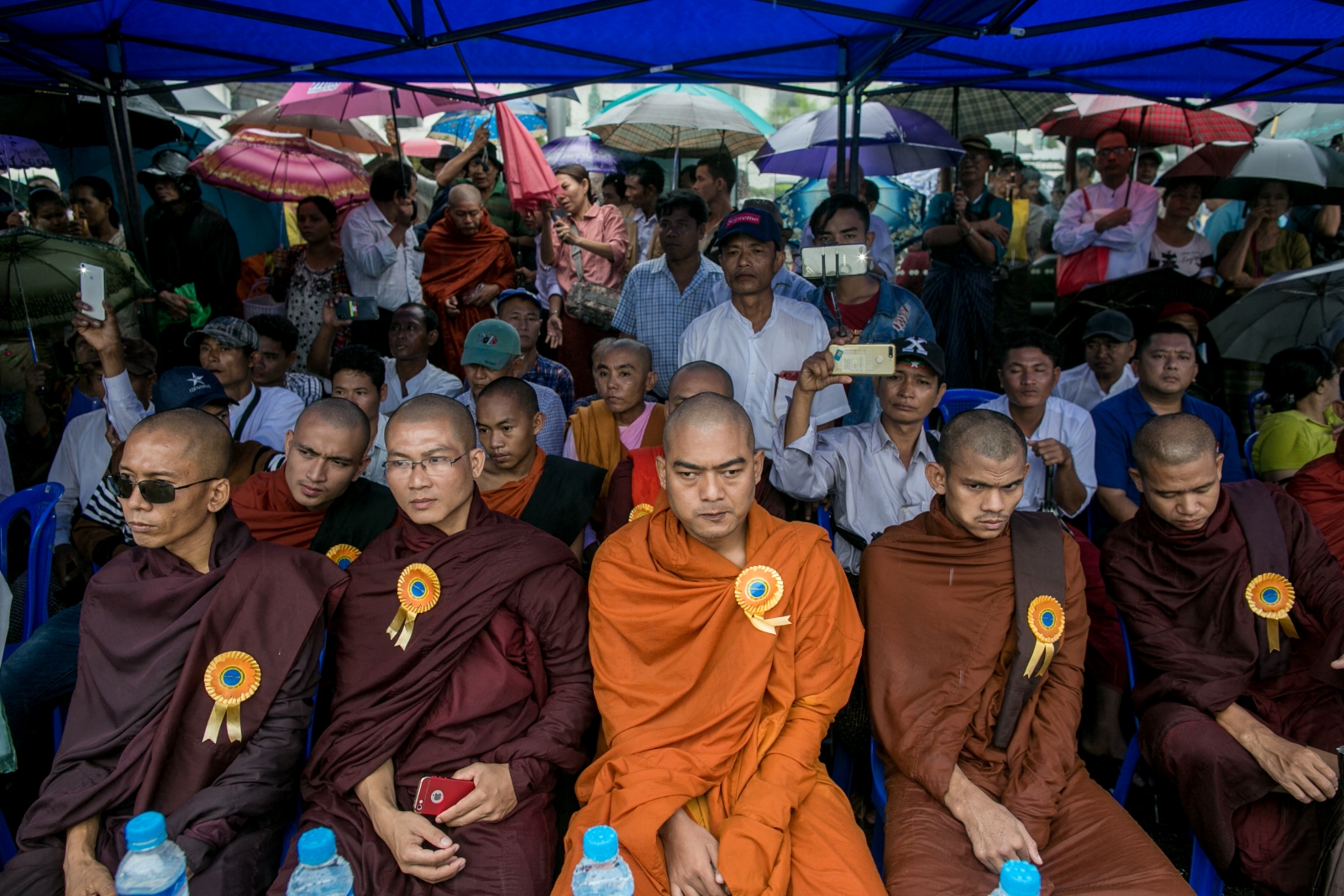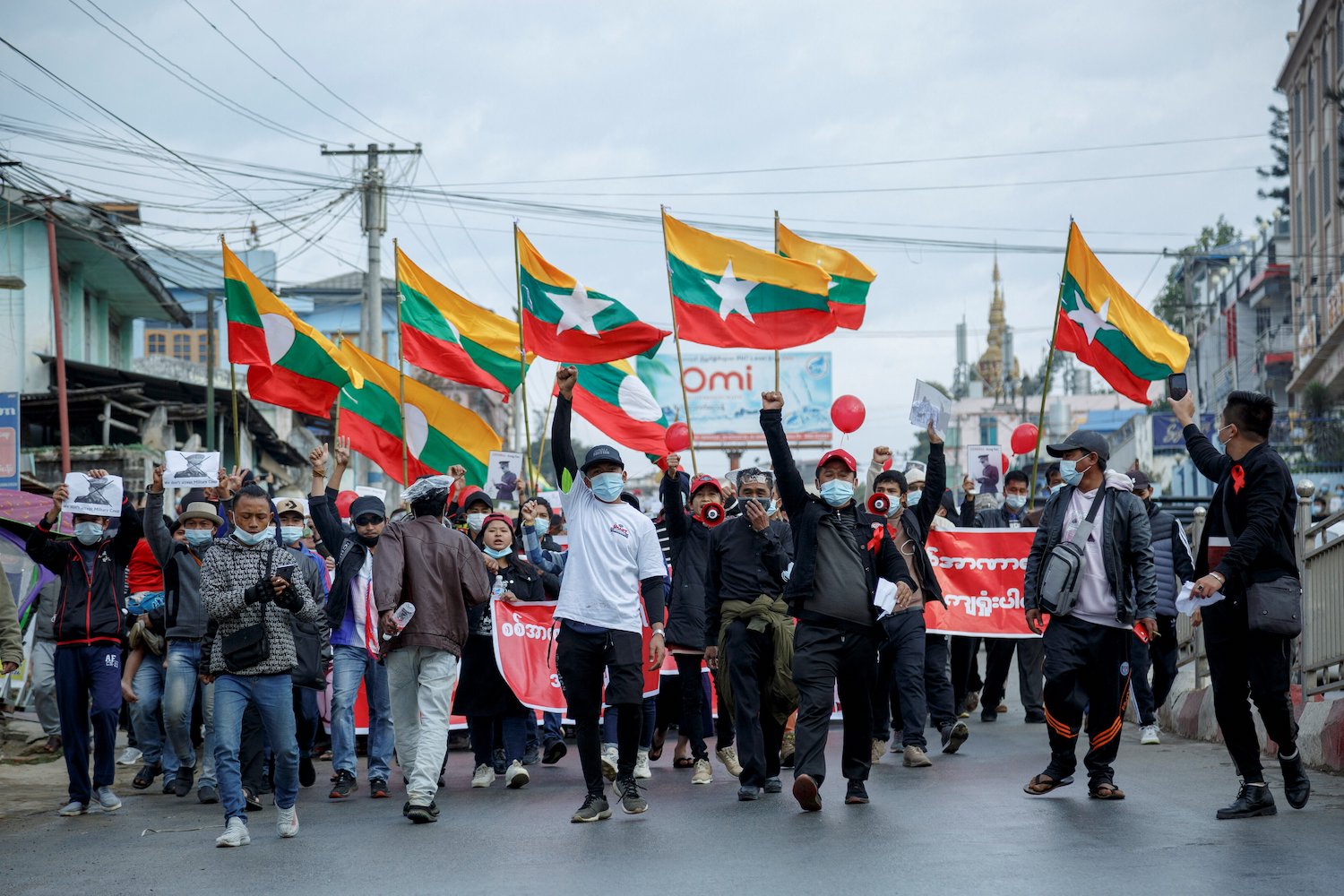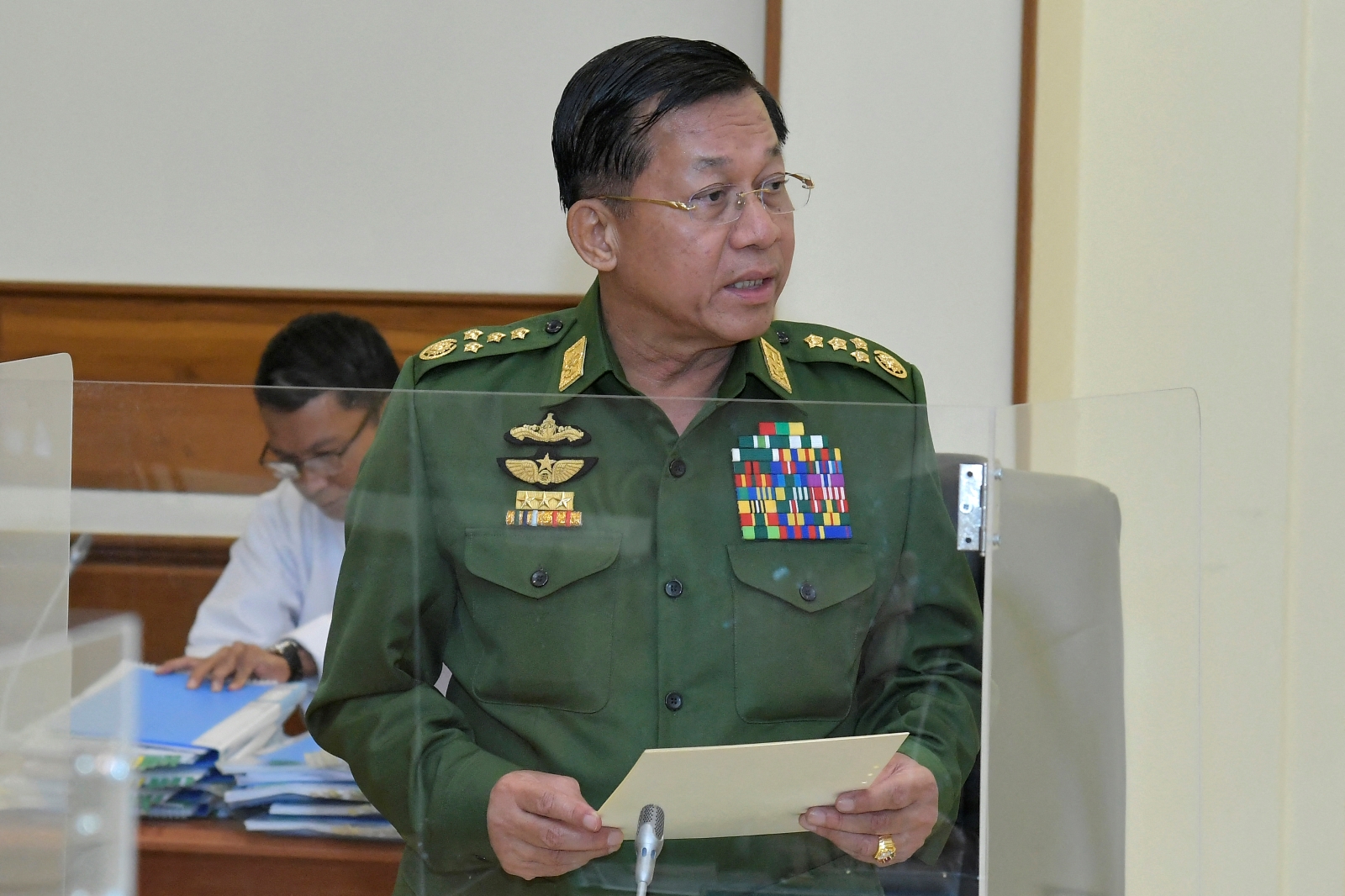Differences over the need for changes to the constitution are the main reason why relations between the government and the Tatmadaw are far from smooth.
By SITHU AUNG MYINT | FRONTIER
ON MARCH 27, 1945, the Burmese National Army launched its resistance to the Japanese military occupation. The anniversary of this event is known by the National League for Democracy as Anti-Fascist Resistance Day and celebrated by the Tatmadaw as Armed Forces Day.
At this year’s Armed Forces Day parade in Nay Pyi Taw, Tatmadaw deputy commander-in-chief Vice Senior General Soe Win gave the speech in the absence of Tatmadaw chief Senior General Min Aung Hlaing, who the military announced had been injured in an accident. Soe Win’s speech and an Anti-Fascist Resistance Day statement issued by the NLD revealed significant disagreement and differences of opinion between the two sides.
I would argue the speeches constituted warnings to each other. As the NLD government enters its fourth year in office, what is the state of the relationship between it and the military?
Soe Win’s speech covered historical events and differed little from those heard at previous Armed Forces Day parades. He said the seizure of power by General Ne Win in 1962 was necessary and correct because of the danger of the Union disintegrating and he described the national uprising in 1988 as a riot. He also said the process launched by the NLD in the national legislature, the Pyidaungsu Hluttaw, to amend the military-drafted 2008 Constitution was in breach of procedures outlined in chapter 12 of the charter.
Support more independent journalism like this. Sign up to be a Frontier member.
In a democracy, the opinion of the minority must be respected, Soe Win said, adding that doing the wrong thing because it had majority support was not democracy and hampered peace and stability. In what was interpreted as a veiled warning to the NLD government, Soe Win outlined the achievements of the country’s military leaders and said it was important to learn from history.
The NLD marked March 27 with a robust Anti-Fascist Resistance Day statement that quoted extensively from national hero Bogyoke Aung San and included these words:
“The Armed Forces are not to show power or torture the citizens … The Tatmadaw must be the servant of the country and the country must not be the servant of Tatmadaw. In this country or in any other country, soldiers are not the only people who love their country. There are people, though they are not soldiers, who really sacrifice for the country. So it’s necessary to change the belief that only a soldier can be a real man.”
The statement also quoted Aung San as saying: “Our soldiers are not to bully you, all of you, including Shan, Kayin, Kachin, Chin and Bamar. The Tatmadaw was not established for a particular person. It is for the whole nation, for all the people of the country.”
Citing the Bogyoke’s words, the NLD statement urged the Tatmadaw to depart from being the army of dictatorship.
At a rally in Nay Pyi Taw on March 29 in support of constitutional reform, speakers openly criticised the charter and the Tatmadaw leadership. Speakers at the rally included Man Taunglonpyan, who said that the more the people demand changes to the constitution, the more worried the Tatmadaw is about retaining its wealth and powerful role.
“These people,” he said, referring to the military, “will always obstruct and act in defiance. The people are destitute but they take everything and do what they want to.”
Man Taunglonpyan drew attention to section 20(a) of the constitution, which describes the Tatmadaw as “strong, competent and modern”. “If we showed [this section] to the international community, they would ask ‘Are you insane?’ If we show the 2008 Constitution, they would ask, ‘Are the ones who wrote this constitution mentally fit?’”
Writer U Htin Linn Oo told the rally that to become an MP a candidate would need the votes of many thousands of people. However, he said, the Tatmadaw commander-in-chief can appoint 110 lawmakers to the Pyithu Hluttaw at the stroke of a pen. “Isn’t that too much?” said Htin Linn Oo, noting that not even the head of state, the president, can appoint a lawmaker to the hluttaw.
The speeches and statements on March 27 and 29 show that the National League for Democracy and the Tatmadaw are in confrontation over the issue of constitutional change. This contrasts with the peace process and conflict in Rakhine, where there is no open disagreement between them. The root of the problem is that the Tatmadaw leadership continues to uphold the 2008 Constitution, a legacy of dictatorship, while the NLD does not seem to be able to persuade it to accept constitutional reform.
Instead, it has opted for confrontation. A smooth relationship between the government and the Tatmadaw is essential for stability, to address political and economic problems, and to respond to international pressure. Otherwise, there is still a risk that Myanmar’s transition to democracy will fail.


